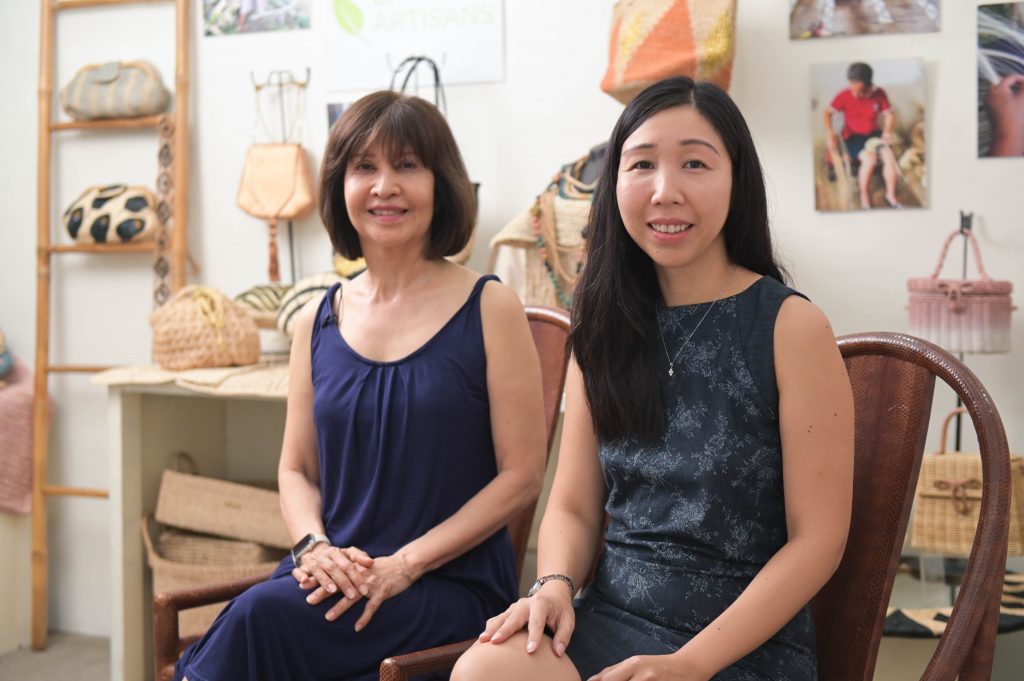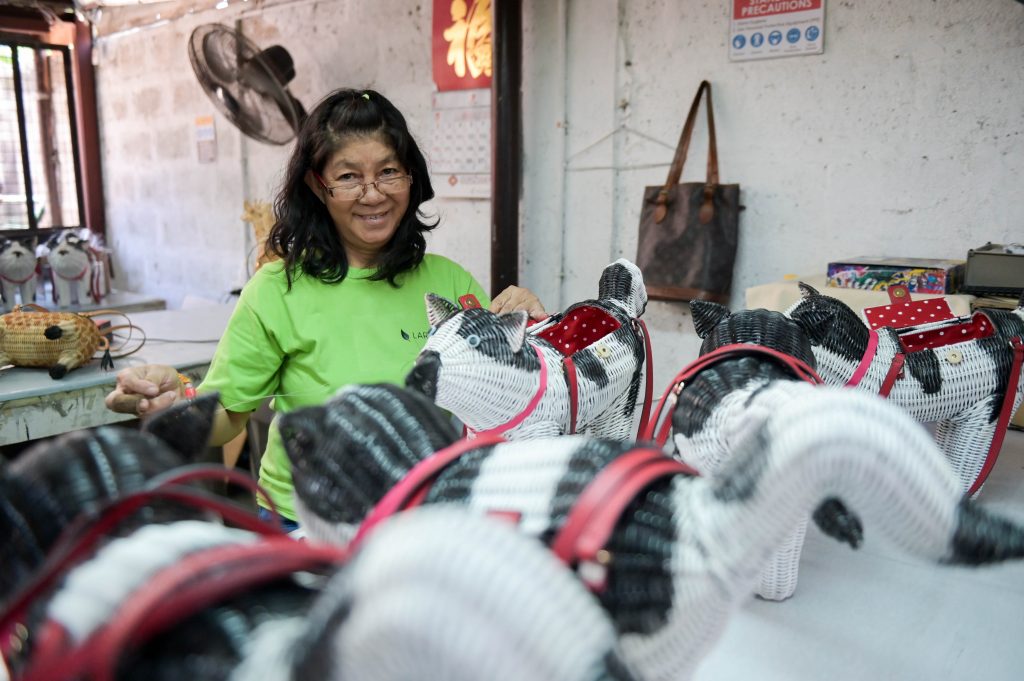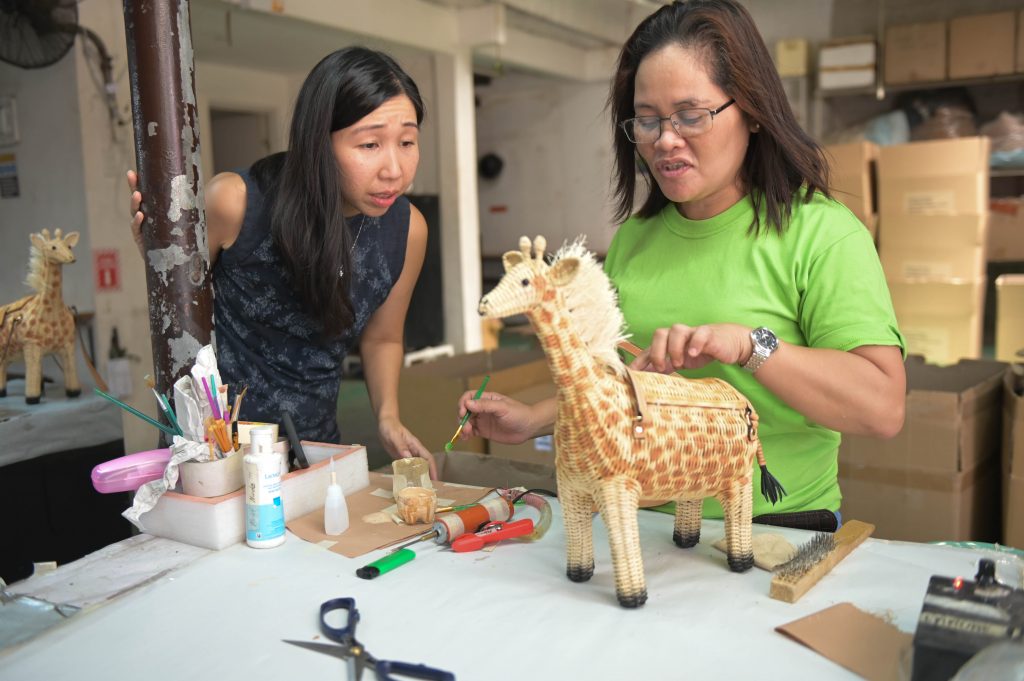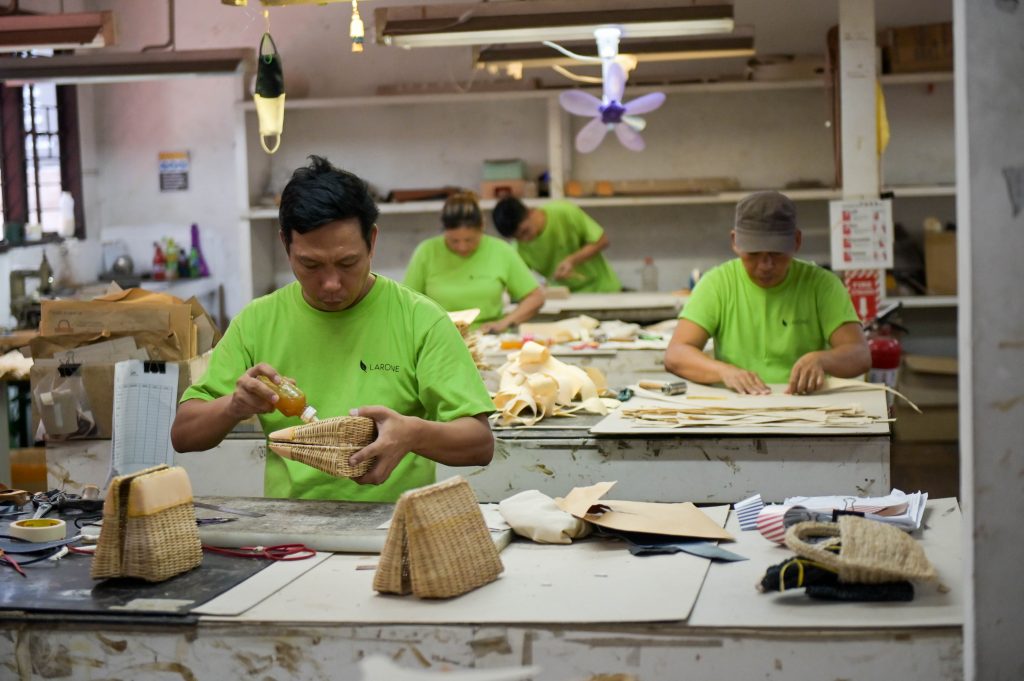Trendy PH handbags impress fashionistas in Europe

Jennifer Lo is a living proof that an eye for aesthetics can be inherited.
Based in Makati City, Metro Manila, the third-generation entrepreneur has carried on her family’s business of handicrafts—the Larone Crafts, registered in 1984.
Growing up, she helped her mother during trade shows, observing how business was conducted with foreign buyers and taking minutes of business meetings.
After completing a short course on Manufacturing Management at the Fashion Institute of Design and Merchandising in Los Angeles, United States of America (USA) in 2006, she worked with various fashion companies before coming back to the Philippines to help in her mother’s handbag business.
“I’m the steward of my parents’ and grandparents’ hard work. My goal is to make the business sustainable for another 20 years,” shared Jennifer.
Operating out of a compact 500-square-meter office that includes a production area and warehouse on the top floor, she exudes a hands-on demeanor.

Tradition à la mode: when tradition meets fashion
Larone Crafts’ designs are modern but remain true to Pinoy traditions by incorporating Tinalak weaves and the woven fabric Inabel. Natural plant fibers such as abaca, raffia, and seagrass sourced from all around the Philippines add an indigenous charm to her products.
The results are timeless accessories that buyers can keep in their wardrobes season after season.
“The bags are meant to be used all year round. We do not make items that are just for a certain season to be thrown away the next. We manufacture them to last.”
In the collection of Larone Crafts’ handbags, the signature hand-embroidered clutch bags are a particular hit with buyers.

Carrying on the export mission
The agility of Larone Crafts in staying abreast with technological advancements and design trends has kept it exporting successfully over the years.
The company’s first exports were made in 1984 to the USA. Back then, Jennifer was only three years old.
“I can see how conducting international business at a time when the Internet was not yet existing must have been quite a challenge,” said Jennifer, expressing her appreciation for the ease and speed that technological advancement has brought about over the years.
In 2009, when Jennifer joined the company, she continued to step up to evolving market trends.
“Smaller niche brands were coming into the field. Rather than large containers of orders with thousands of pieces of the same style, orders of several styles and colors in a few hundred pieces were preferred.”
In 2022, following the pandemic, 3% of Larone’s customers were from the European Union (EU), 90% from the USA, and the rest a mix from other countries.
Going international with help from the government
For a long time, the only way to start an international business was through participation in trade fairs, which is not an easy thing to do alone.
The company has been part of the Manila FAME almost every year since the 1980s. Showing at Maison et Objet, NY Now, and Ambiente over the last 10 years has also been fruitful.
“We received support from the Center for International Trade Expositions and Missions (CITEM), the export promotion arm of the Philippine government’s Department of Trade and Industry (DTI), to participate in international trade
shows in the EU and in the USA. Before the internet and emails, this was the only way of gaining new overseas customers.”
Jennifer feels that her company’s participation in these trade shows has been instrumental in reaching customers, particularly in the EU. Trade shows boost market research, linkages, design aesthetics, and competitiveness.
She emphasized that CITEM’s support in terms of product design, booth design and implementation, and pre-show marketing has been invaluable in upgrading her business.
“These are all high costs that would be difficult for our small business to absorb when initially trying to enter into a new market.”

GSP+ for the EU
Jennifer sees many benefits from the EU Generalized System of Preference Plus (GSP+).
“The EU GSP + makes our products more competitive in the EU market by reducing the cost of importing our goods into the country for our buyers. It improves access to the 27 countries in the EU.”
Larone Crafts is already exporting to Spain and the Netherlands, with samples sent recently to Italy which are expected to generate more orders.
“The EU is an attractive export market for our company because of the ease of doing business with their bilingual teams, the market’s love for sustainable, handmade, and natural products, and the favorable trade policies such as the GSP+.”
Leaving no one behind
As Jennifer works towards expanding her product assortment in home and lifestyle products, she is cognizant of those who work for her.
Depending upon the volume of orders, in any given season, she employs approximately 100 workers.
She not only retained artisan families from her mother’s time, but also sources from small businesses that employ women.
“We work with weavers and artisans in their communities from all over the Philippines, giving them a reliable livelihood and helping to preserve the region’s traditional crafts.”
The ARISE Plus Philippines project is enabling Philippine exporters to take advantage of European Union (EU) market access and the trade privileges granted under the Generalized System of Preference (GSP+). It supports the overall EU-Philippines trade relationship and trade-related policies.
ARISE Plus Philippines is a project of the Government of the Philippines, with the Department of Trade and Industry as lead partner together with the Department of Agriculture, Food and Drug Administration, Bureau of Customs, the Department of Science and Technology, as well as the private sector. It is funded by the EU, with the International Trade Centre (ITC) as the technical agency for the project. ♦
Date of release: 01 August 2023



